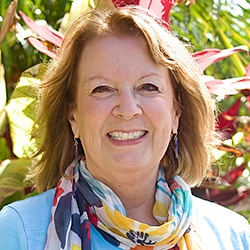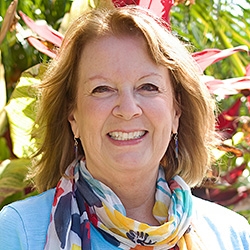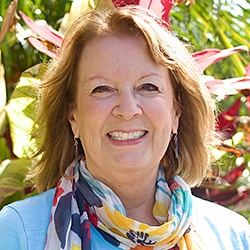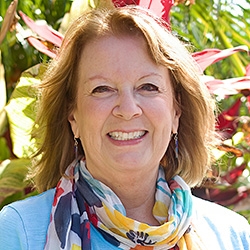
Search Results: imagination
-
This is an opportunity to explore/transform a limiting belief you have about yourself using what science is discovering about neurobiology. A limiting belief is simply an idea or thought we have about ourselves/life that we or others have affirmed over and over again – these ideas usually get in the way of living life fully.
-
There are endless ways to meet our needs. Conflict occurs when we argue over strategies. When we actively value everyone’s needs, we foster openness and deeper connection in our relationships. Today look for opportunities to focus on needs in order to resolve an issue with at least one person.
-
Trainer Tip: Even if we don't agree, acknowledging others' realities can help demonstrate that we're including their feelings and needs in the conversation. Creating space for your reality and theirs can also bring a sense of connection, understanding, inclusion, abundance and fullness in life. Try it today. Read on for an example.
-
Grow your compassionate presence with this 3-process exercise. The processes include: Connecting to and feeling the Life Impulse meditation, Creating your own inner space of compassionate presence exercise, and the Compassionately Embracing visualization. These processes will guide you toward deeper self connection and compassionate presence.
-
Read this short Japanese parable that symbolically illustrates the outcomes of having a competitive mindset – in contrast to an interdependent, collaborative one where everyone wins. It’s a story that encapsulates part of the spirit of NVC.
-
When deciding if someone crossed your boundaries and how to respond, you may get conflicting opinions on it. These opinions can be coarse attempts to manage life with rules about what should(n’t) happen. Instead, so that you can find where you want to invest your energy, ask yourself questions that reveal what for you is truly in integrity, nourishing, connects to your heart, and deepens self understanding. Read on for examples.
-
So many of us have a habitual response of trying to eliminate uncertainty and the arrival of what we don't want. Alternatively, we can embrace the irreducible uncertainty of life. This shift from resistance and helplessness to mourning allows acceptance of outcomes, reduction of stress, and opens the door to noticing and appreciating what's present and available amidst challenges.
-
NVC is a process. It’s the willingness and effort to empathize with both sides of a conflict, encouraging each side to empathize with the other, and then seeing what solution can arise, working together to meet the needs of both sides. Empathy is the experience of being not separate as well as being an individual. It's seeing we're all part of the one ever-flowing consciousness of being, all unique expressions of this unity.
-
Dear friends,
I greatly enjoyed my annual New Year’s Peace Meditation yesterday. It always brings together NVC enthusiasts from across the world and is one of my favorite traditions for welcoming the New Year!
How was 2024 for you? For me, it was a bumpy ride. There were moments of joy spending time with our 3-year-old grandson, mine and Kim’s first international trip together (a bonafide vacation that was void of work), and precious time with family and friends. There was also heartbreak...
-
NVC practice is based on several key assumptions and intentions. When we live based on these assumptions and intentions, self-connection and connection with others become increasingly possible and easy, helping us contribute to a world where everyone’s needs are attended to peacefully.
-
How can we mobilize this insight in support of our own and others' healing? These recordings will shed light on how the social context into which we are born affects our experience, and what we can do about it at the individual level within the paradigm of nonviolence.
-
Love keeps the thread of connection intact in times when all around us we see the human fabric becoming threadbare. When we dig deep with love into guessing what others care about that had given rise to their actions, it changes us. It brings us closer to understanding the incomprehensible -- and closer to vision, imagination, humility, curiosity, commonality, and loving action. Read on for more on applying this to people we deem "conspiracy theorists", and those who are on the other end of the political divide.
-
Do you find yourself giving in with growing resentment? Do you avoid conflict and explode later without apparent reason? Miki Kashtan, a world-renowned CNVC Certified Trainer, invites you to listen to this two-session telecourse recording to re-imagine and fine tune your skills at dealing with disagreements and negotiations.
-
Ask the Trainer: "I'm part of a small, self-led NVC group that's been working together for almost two years. We are experiencing some growing pains in that we're still not certain how and under what circumstances to make requests, especially negative ones."
-
For many, the word “need” is associated with lack, neediness, and scarcity. These associations are the opposite of the meaning of needs in Nonviolent Communication (NVC). In NVC, needs are the motivational energy of our innate wholeness and desire to grow, like the energy of a plant pushing it up through the soil and toward the sun.
-
Trainer Tip: List specific things that would signify love to you. Based on who the other person is and who you are, how could your need for love be met? Being specific is important. General statements, such as “I just want you to love me” or “I would like you to be more attentive and listen to me more” won’t work. (S)he may already think (s)he is attentive. What would being attentive look like to you? And how will he know if (s)he’s been attentive enough?
-
Even in a conflict, you can offer emotional safety without being enmeshed -- and you can do this without sliding into strategies to gain power over another. You can prioritize connection, express your intention, make space for mutuality, honestly reveal what you care about and propose a way forward. This means caring for your needs regardless of their response -- and mourning if their response isn't what you want. Read on for more.
-
Trainer Tip: The world’s people are consuming more of earth's resources at an astronomical speed. This is a form of violence, of not valuing everyone’s needs. Respect and support everything that lives, including yourself. How you can take less from earth’s resources and replenish more so that earth can flourish? Even if its small, take action today to support earth’s sustainability.
-
When conflict or criticism occurs, we can notice two layers of meaning to create connection: the content and the needs the speaker is holding. When we are able to recognize this --and ideally engage open-heartedly, with curiosity, make clear requests, imagining what they want, no matter how their expression was framed -- we have more opportunity to support the longevity of our relationships, and to decrease our loneliness when together.
-
Judging or criticizing others indicates pain, unmet needs and a coping strategy. It distracts you from yourself and can give you the illusion of control. You may think you see more than they do, imagining criticism will bring change. But even a correct analysis won’t inspire change if they hear criticism. Instead, the moment you notice judgments or criticism turn towards yourself with compassion. What are your feelings and needs?





















